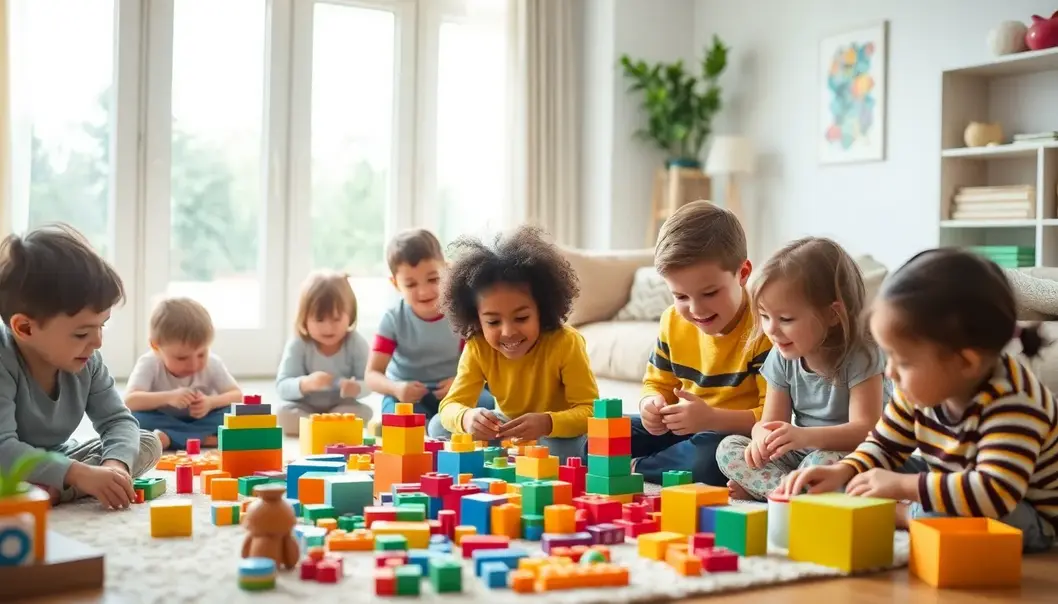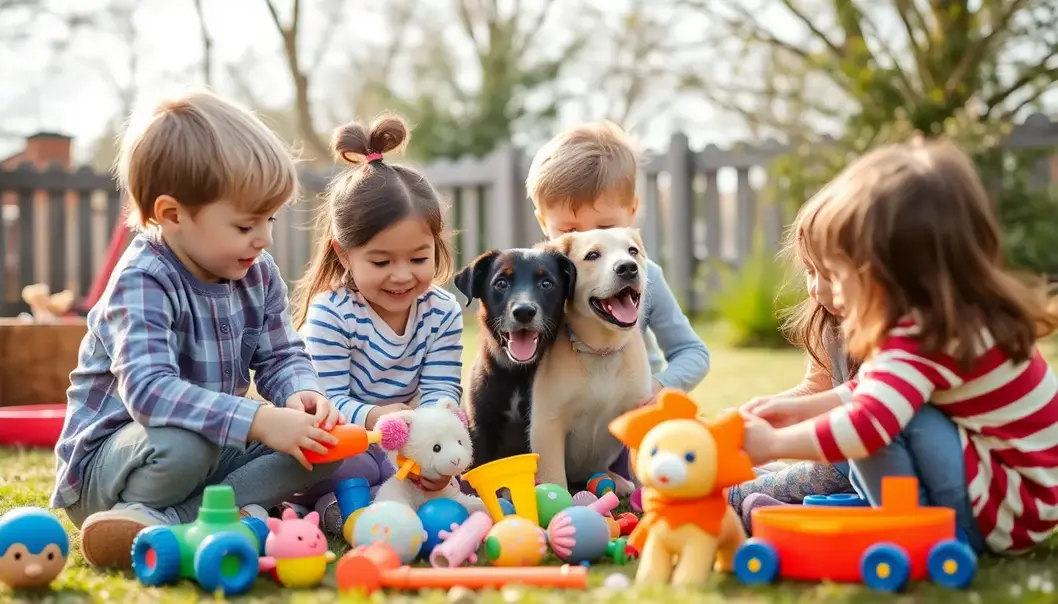The formative years of a child’s life are filled with curiosity, exploration, and learning through play. Toys, ubiquitous in these early years, do more than just entertain. They serve as vehicles for learning and development, offering opportunities to enhance cognitive skills, build emotional intelligence, and foster social interactions. For pet owners with kids or those who see their pets as an integral part of the family, understanding how play impacts learning can provide insights into the natural learning tendencies of children and animals alike. Just as a ball can teach a dog agility and focus, a puzzle can help a child develop problem-solving skills. Delve into why toys matter in shaping young, inquisitive minds.
The Role of Toys in Cognitive Development

Toys are more than simple objects for amusement; they are fundamental tools in the cognitive development of children. As infants and toddlers grow, their minds eagerly seek stimulation and learning opportunities, which toys robustly provide.
Building blocks, a classic staple in any playroom, exemplify this concept. These versatile tools nurture spatial awareness and problem-solving skills. When a child stacks blocks, they explore physics principles, learning balance and gravity. Beyond physics, building blocks enhance fine motor skills and encourage cooperative play when children build together.
Puzzles serve as profound instruments for developing cognitive skills such as critical thinking, pattern recognition, and memory. When children engage with puzzles, they learn how to piece together distinct shapes into a coherent whole. This activity sharpens focus and fosters patience and perseverance as they strive to solve the challenge before them.
Interactive games, especially those that incorporate technological elements, provide dynamic ways to learn new concepts. By integrating sound, movement, and visual feedback, these games stimulate a child’s curiosity. For example, interactive mats that respond to movement can teach children cause and effect, pairing physical activity with cognitive tasks. Such games also introduce early concepts of coding and logic through fun, engaging formats.
Choosing age-appropriate toys is essential to maximize cognitive benefits. For young toddlers, toys that promote sensory exploration—a set of colorful, textured objects—can stimulate all senses, fostering a rich learning environment. For preschoolers, toys that challenge memory and introduce basic academic concepts, such as alphabet or number games, align well with their developmental stage.
These examples of toys and their educational value underline how integral play is to cognitive development. The more opportunity children have to play with varied toys, the more they unfold potential pathways for learning and growth.
Fostering Emotional and Social Skills Through Play

Toys are more than objects of amusement; they are powerful tools that aid in the emotional and social development of children. Through engaging in play, children learn to navigate their feelings and interact with their peers, laying the foundation for essential life skills. Among these toys, role-playing items and dolls stand out for their unique ability to help children understand emotions and social cues.
Role-playing toys and dolls offer children a canvas upon which they can project their understanding of the world. When children engage with these toys, they often mimic real-life scenarios, allowing them to experiment with different roles, perspectives, and outcomes. This kind of play is crucial for developing empathy, as it encourages children to place themselves in someone else’s shoes. It helps them to decode facial expressions and body language, fostering an understanding of various emotions, from happiness to frustration, and the appropriate reactions to them.
Moreover, group play with toys is instrumental in teaching children about cooperation and teamwork. Activities that involve sharing toys facilitate the development of social skills like turn-taking, negotiating, and collaborating towards a common goal. Through these interactions, children learn to respect others’ perspectives and the importance of compromise. These are skills that will serve them well beyond their play years, enhancing their ability to work effectively within teams in academic or workplace settings.
The presence of pets, in conjunction with toys, can further amplify these developmental benefits. Interactions with pets provide children additional opportunities to express care and empathy. Toys designed to be used with pets, such as fetch toys or interactive puzzles, can foster a sense of responsibility and enhance the bond between the child and their pet. Through these activities, children learn about the needs and emotions of creatures other than humans, broadening their emotional intelligence.
In a world where learning environments are continuously evolving, harnessing the power of play through toys remains a constant in developing emotional and social intelligence in children. Whether through solitary exploration or interactive group activities, toys are indispensable allies in shaping well-rounded individuals.
Final words
Play is an integral part of childhood that extends far beyond mere entertainment. Toys provide essential tools for developing cognitive, emotional, and social skills. Understanding their influence can help caregivers and pet owners alike nurture an enriching environment for both children and pets. As toys engage young minds, they create pathways for learning that last a lifetime, fostering curious, empathetic, and intelligent individuals.
Discover how our educational toys can enrich your child’s development. Visit us now!
Learn more: https://www.kidslearningtoys.com
About us
KidsLearningToys offers a wide array of educational toys that support cognitive, emotional, and social development in children. Our products are designed to make learning engaging and effective, providing young minds with the right tools for exploration. We emphasize quality and creativity, ensuring each toy we offer fosters a lifelong love of learning.

